In-depth analysis of the Lakers' dilemma: Should they trade Reeves at his peak value or sign him to a long-term max contract?
Through the season, Reeves has posted averages of 32 points, 5.3 rebounds, and 9 assists, shooting 50.4% from the field, 36.2% from beyond the arc, and 91% from the free throw line. This puts the Lakers in a challenging position: whether to trade him at the peak of his value or to view him as a foundational piece and extend him with a max deal. Bleacher Report provides an analysis—
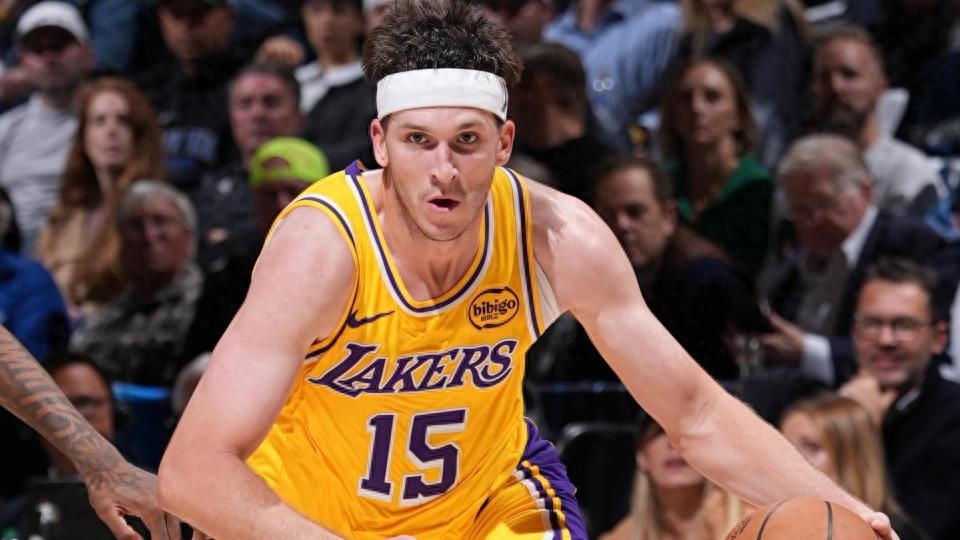

Is Reeves now "too expensive to keep"?
Reeves holds a player option worth $14.9 million for the 2026-27 season. It’s almost certain he will decline this option.
Don’t expect a scenario where he exercises the option and then re-signs. If Reeves picks the option, the Lakers could only offer a four-year, $93.4 million extension on top of that, totaling five years and just over $108 million — an offer that Reeves is unlikely to consider.
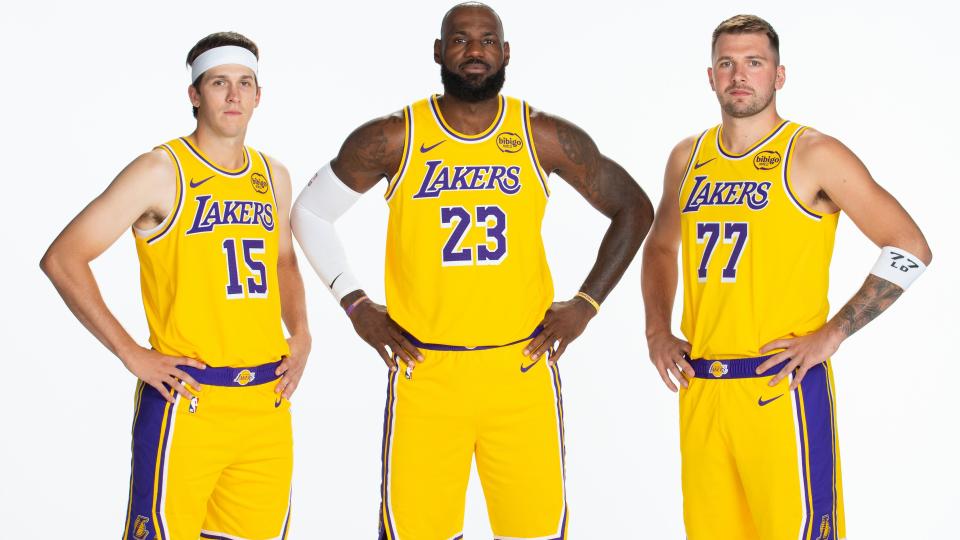
If he maintains his current form, among the nine teams projected to have cap space, some may be willing to offer him a max contract.
Based on current salary projections, here are the possible contract scenarios—
Lakers’ 3-year max offer: $134.5 million
Other teams’ 3-year max offer: $130.7 million
Lakers’ 4-year max offer: $185.9 million
Other teams’ 4-year max offer: $178.5 million
Lakers’ 5-year max offer: $240.7 million
Considering Luka Doncic’s future salary is locked above $50 million per year, the Lakers must seriously evaluate whether they are willing to pay Reeves over $40 million annually, especially with the team’s goal to pursue higher-tier stars in the future.
What would a high-value trade for Reeves look like?
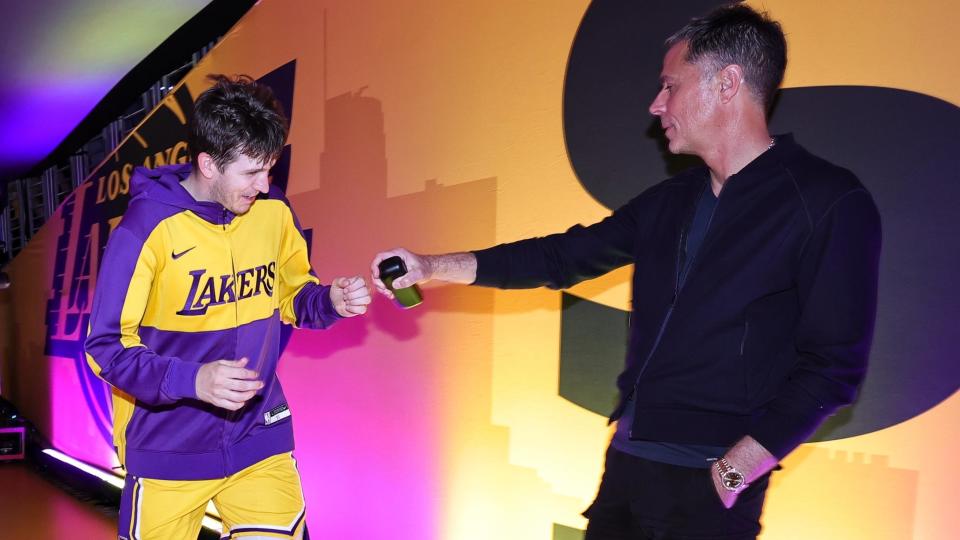
If the Lakers decide to trade Reeves at his peak value, there are roughly three paths they could take—
Use him as the centerpiece to acquire another star player;
Convert him into a "future-focused" trade package centered around first-round picks and promising rookies, to be used as assets in bigger trades down the line;
Attempt to exchange him for moderate returns, such as draft picks, young prospects, and a few role players who can help maintain current competitiveness.
At present, which path is chosen depends on the team’s preferences, but in the coming weeks or months, circumstances will compel the Lakers to make a clear decision.
As injured Lakers players gradually return, the team will better understand its position in the Western Conference — a factor that will directly affect the type of return they seek in a Reeves trade.
Meanwhile, the best fit teams to trade for Reeves are those urgently needing additional ball handlers and scoring options, and willing to part with quality assets to fill that gap. So, which teams meet these criteria?
Potential trade partner 1: Dallas Mavericks
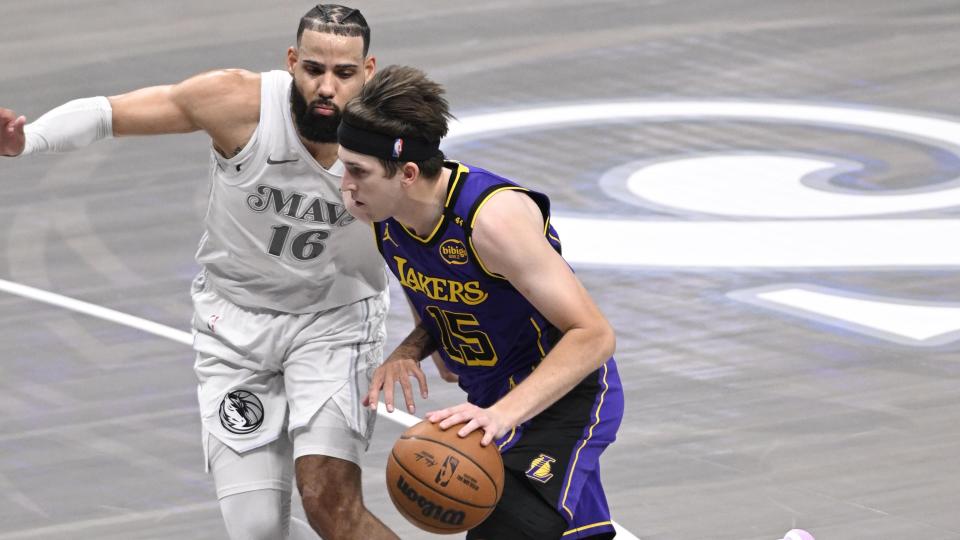
Few teams need a ball handler more than the Mavericks. If Doncic cannot recover from his knee injury this season, the Mavericks’ need for a ball handler becomes unavoidable.
Currently, the Mavericks are just $1.3 million below the second luxury tax threshold, while the Lakers are only $1.2 million under the first luxury tax line — meaning this trade might require a third team to facilitate it, though this challenge is manageable.
As long as a third party is found to help facilitate the deal, constructing a viable trade package is not difficult. The Mavericks have a promising young big man, Reavesley, who has previously played alongside Doncic — plus they can offer two first-round picks as incentives, including the Lakers’ 2029 first-round pick.
Matching salaries is relatively straightforward. The Mavericks have several mid-level salary players like Marshall, Gafford, and former Laker Christie, whose contracts can be used for salary matching.
Potential trade partner 2: Detroit Pistons
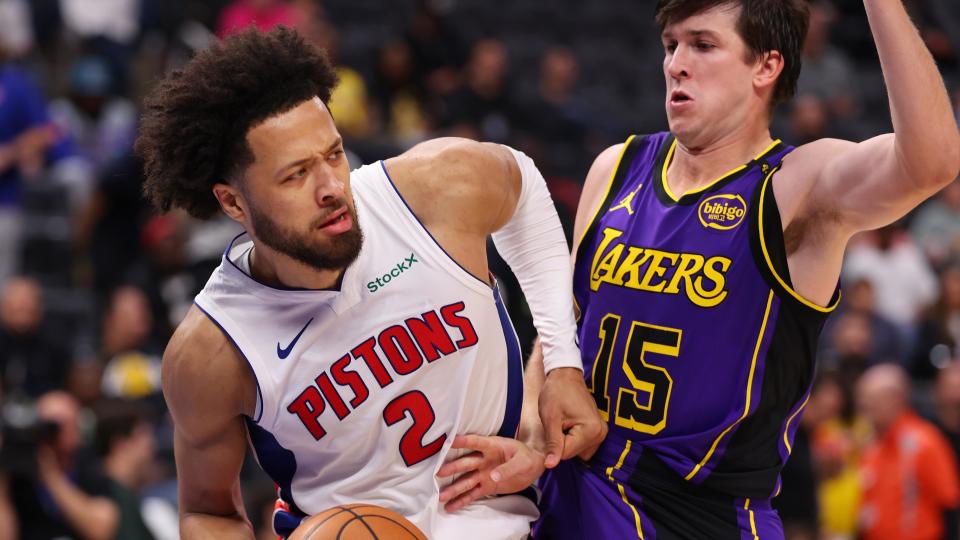
The best phase of the Detroit Pistons last season was when they had another reliable ball handler who could complement Cunningham and lead independently.
However, this season, due to Ivey’s right knee injury and Lavelle’s hamstring issues combined with a slow start, the Pistons’ offense has lost the smoothness it had last year.
Although the Pistons are expected to have cap space this summer, their ability to spend big is limited by the cap holds for Ivey and Duren’s restricted free agent status. Acquiring Reeves and his Bird rights offers a safer route — plus, Reeves’ arrival can offset the risk of Ivey not developing as expected.
In any negotiation, Ausar Thompson is almost certainly off-limits for the Pistons, but Detroit could build a trade package around Stewart, Holland, and first-round picks. Duren might also be included if the Lakers are willing to pay him a substantial contract in the future.
Potential trade partner 3: Houston Rockets

VanVleet’s knee injury has left the Rockets without a proven starting ball handler who can also space the floor. Unless sophomore Shepard suddenly breaks out, there is no internal candidate to fill this role.
After acquiring Durant, the Rockets might be reluctant to give up more assets. On the other hand, trading for and re-signing a 37-year-old star means the team must pursue a short-term championship window, making every move urgent.
If the Rockets are determined to pursue Reeves, they have plenty of trade assets. Except for Durant, Amen, and Sengun, others are available. Jabari Smith Jr. might be an exception due to his recent extension and poison pill clause, which complicates but does not eliminate trade possibilities.
Regardless, the Rockets still possess assets attractive to the Lakers, including Eason and nine future first-round picks. This deal might evolve into a multi-player, multi-team trade, but if the Lakers prioritize draft picks, the Rockets and Lakers can reach an agreement by matching mid-level salaries.
Should the Lakers capitalize on Reeves’ trade value?
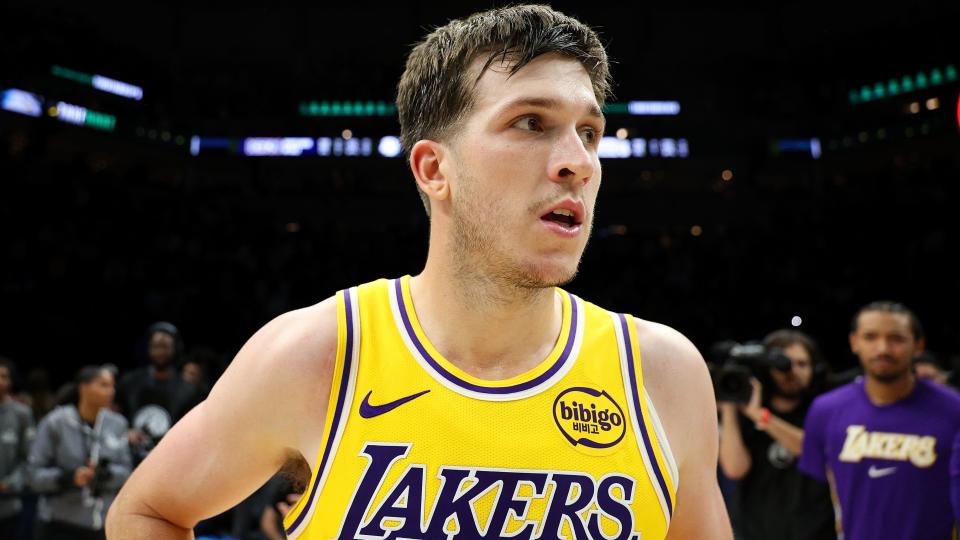
Unless a potential buyer offers a package including a peak All-Star level player plus quality assets, the Lakers should let Reeves’ future be decided in free agency.
Admittedly, this carries the risk that Reeves might leave without any return, but the Lakers can offer him longer contract years and higher pay than any other team. Also, according to LeBron’s future plans, the Lakers can promise Reeves a permanent role as the team’s “second leader.”
If Reeves’ salary were higher now, putting him on the trade block before the February 6 deadline would be more attractive. However, his current salary is only $13.9 million, and with the Lakers under a hard salary cap and near the first luxury tax line, it’s difficult to get equivalent value in return for such a low-cost, high-impact player even if the team prioritizes draft picks.
Unless another team’s management shows the boldness like Mavericks GM Harrison to push a blockbuster trade, Reeves might be more valuable to the Lakers after signing a new contract — either as a core player or a future trade asset.
What do you think? Should the Lakers re-sign Reeves or trade him while his value is high? Feel free to share your thoughts.


Wonderfulshortvideo
Every rookie has firsts.


Will never get tired of seeing this 😮💨


@San Antonio Spurs rookie Carter Bryant sounds off on his defensive prowess 🔐


Wemby was HOT from three in the first half 🎯


Dylan Harper with AUTHORITY 💥


Cooper Flagg is locked in tonight 🔒


THIS SLAM WAS VICIOUS 😤








 Links
Links
 Contact
Contact
 App
App


